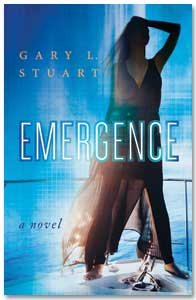Here we are, mid-2020, in the throes of our worst public health emergency, facing an onslaught of political attacks because it’s a presidential election year. So, where are the political attack ads we would have seen earlier this spring but for COVID-19’s ugly presence everywhere in America? It is no small favor that the pandemic has also sidelined political attack writers everywhere. The coronavirus has already killed tens of thousands. When conquered later this year, the attack ads take its place, maiming thousands more, which is why we are looking at the ethics of writing political attack ads.
The overly polite definition of a political attack ad is a paid advertisement designed to wage a personal attack against an opposing candidate or political party to gain support for the attacking candidate and attract voters. It’s designed to cut your opponent’s throat to enhance your vote. As always, my focus is an examination of the writing to assess its ethical fitness. This one will be hard. The writers who do this for money can be excused—they are just doing their jobs. Jobs will be scarce this election year because the pandemic has killed much of the economy along with many people.
All jobs have work ethics, even the job of an attack-ad writer. It is the ability to maintain proper moral values while on the job. Moral attitude shapes how the writer performs while maintaining high moral standards. The question is, if your writing job is to attack someone else solely to secure votes for their political opponent, what ethical standards apply? The most commonly applied workplace ethical tests are integrity, honesty, discipline, fairness, responsibility, and accountability. The problem with that list is it only measures the writer, not the writer’s product. There are political attack ad writers out there who meet all these tests. They probably hate their jobs, but that’s not an ethical question.
A better test for those writers is to test the product and circle back to the writer. Here are some of the worst attack ads placed in mainstream media in 2016:
Trump’s attack ad writers listed “external threats to American security, the Middle East, North Korea and Islamic State, but not Russia, while accusing Clinton of lacking fortitude with footage of her recent public faint and of her coughing.”[1] Clinton’s attack ad team responded in kind. “Over plaintive piano and a slurry of Trump misogyny, a group of young girls comb their hair before a mirror and pose a question. Is this the president we want for our daughters?”[2] Both suggested criminal misconduct by the other. Criminal conduct, if in name only, is never investigated or charged for its inherent unethicality.
Attack ads work. They take away votes from one and sluice them to the opponent. That says as much about some voters as it does some politicians. An important question to ask is why they work. They work because they generate an emotional, gut response from voters. They are not written to produce intellectual or rational decision-making.
At least one authority argues the positive side of negative political ads. “Negative advertising encapsulates the sometimes unexpressed Achilles’ heel of one’s opponent. Certainly, voters should make their decisions not just based on policy positions, but on character, judgment, experience, and the ability of a candidate to accomplish their agenda.”[3]
Are political attack ads legal? Can anyone censor or impede them? Both questions have simple answers. Political speech is protected by the First Amendment. Courts have granted attack ads wide latitude. The Federal Trade Commission is empowered to sue or fine any advertiser who puts out a misleading ad, but the agency can only regulate commerce. The Federal Communications Commission has rules that prohibit broadcasters from censoring candidates. Good taste has never been a hallmark of presidential campaigns.
There are no ethical norms regarding political attack ads or those who write them. The real ethical test regarding attack ads lies in the hearts, minds, and votes of those who read them. If you base your vote on attack ads, your moral compass may be one bubble off plumb.
 I am an author and a part-time lawyer with a focus on ethics and professional discipline. I teach creative writing and ethics to law students at Arizona State University. Read my bio.
I am an author and a part-time lawyer with a focus on ethics and professional discipline. I teach creative writing and ethics to law students at Arizona State University. Read my bio.
If you have an important story you want told, you can commission me to write it for you. Learn how.
[1] https://www.theguardian.com/tv-and-radio/2016/oct/12/trump-dangerous-clinton-mirrors-the-most-shocking-presidential-attack-ads-ever-aired
[2] Ibid.
[3] https://thehill.com/blogs/pundits-blog/presidential-campaign/304009-are-negative-campaign-ads-helpful-to-voters






 I am an author and a part-time lawyer with a focus on ethics and professional discipline. I teach creative writing and ethics to law students at Arizona State University.
I am an author and a part-time lawyer with a focus on ethics and professional discipline. I teach creative writing and ethics to law students at Arizona State University.  My latest novel is Emergence, the sequel to Let’s Disappear.
My latest novel is Emergence, the sequel to Let’s Disappear.  If you have an important story you want told, you can commission me to write it for you.
If you have an important story you want told, you can commission me to write it for you.